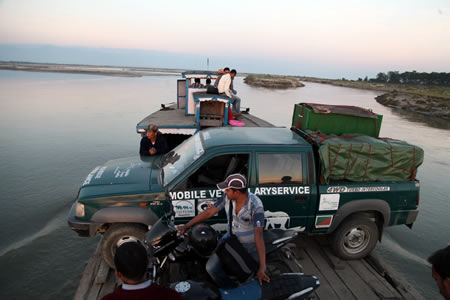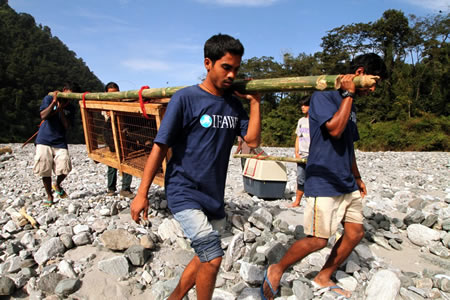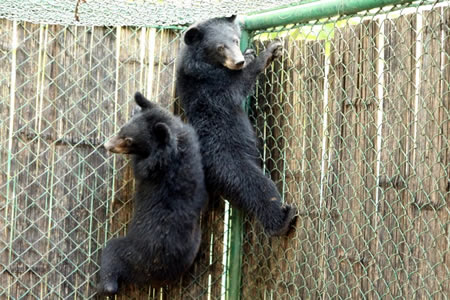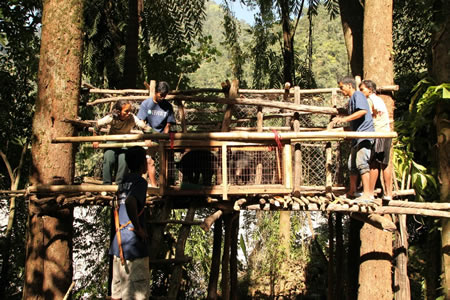Bear cubs moved to Mehlao WS for rehabilitation
The cubs were being hand-raised by the IFAW-WTI (International Fund for Animal Welfare-Wildlife Trust of India) team at the Centre for Wildlife Rehabilitation and Conservation near Kaziranga NP in Assam and the Centre for Bear Rehabilitation and Conservation in Pakke Tiger Reserve in the neighboring state of Arunachal Pradesh. They were moved to Mehao Wildlife Sanctuary in Arunachal Pradesh, to begin acclimatisation to the release site for a soft-release.
Two of these cubs were handed over by locals of Agartala in Tripura who reportedly found them alone in the wild. The third cub was ‘rescued’ by Indian Army from a village locale at Seppa in East Kameng district in Arunachal Pradesh, and handed over to CBRC.
 Transporting the MVS across a river
Transporting the MVS across a river
The Asiatic black bear (Ursus thibetanus) is one of the four bear species found in India. They are distributed along the Himalayan region and northeast Indian hills, and are threatened particularly by habitat degradation and conflict with people. There are also numerous cases of cubs being picked up by locals, after being found alone.












